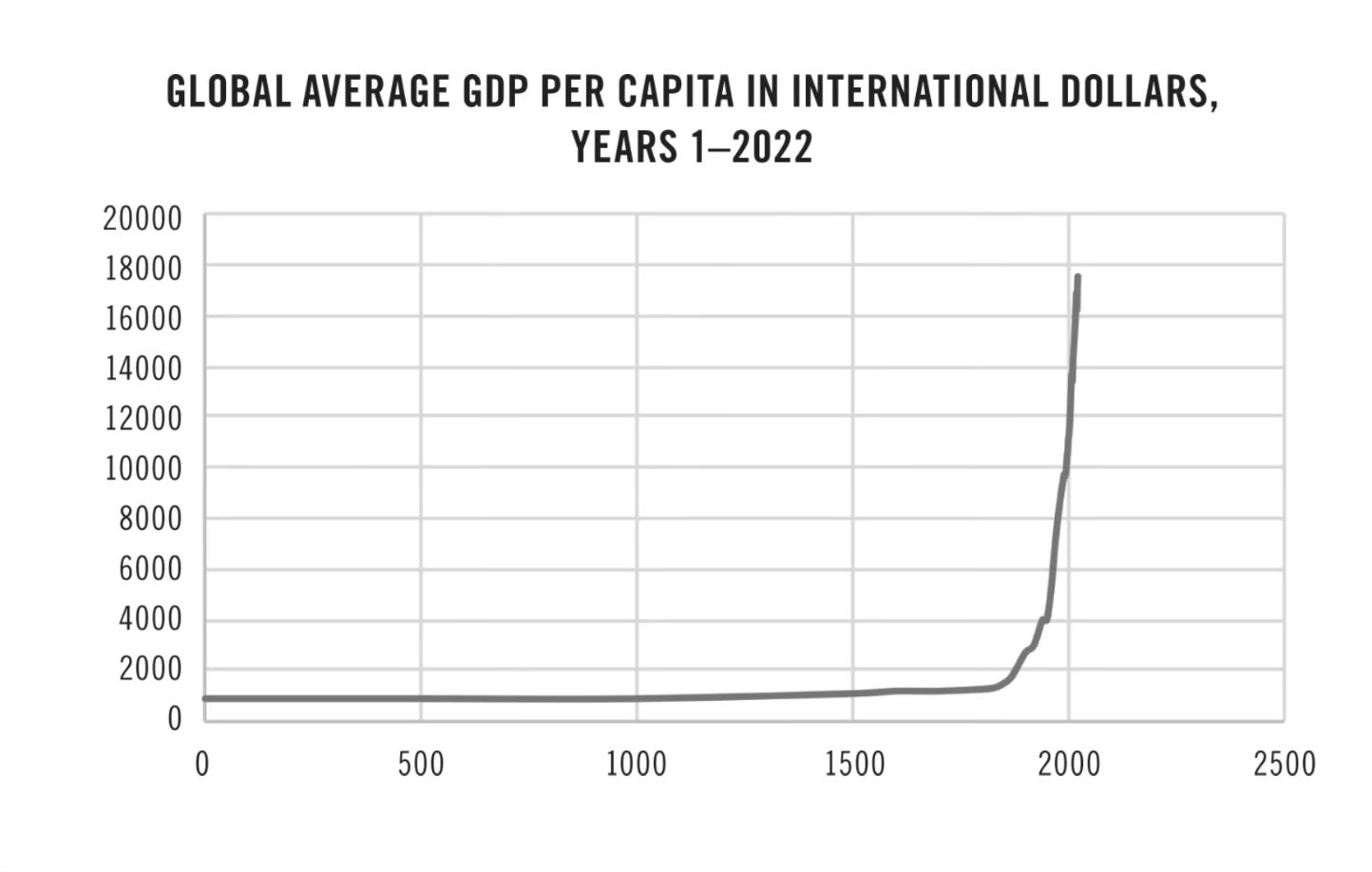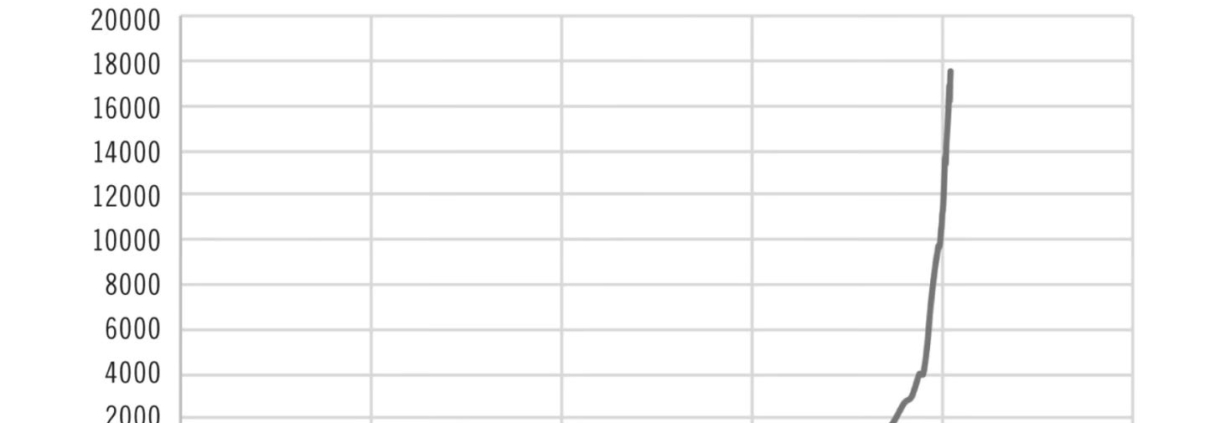Capitalism is never in crisis. It’s a complex system with feedback loops.

It’s not hard to find declarations that capitalism is in crisis. In the book “Capitalism And Its Critics”, John Cassidy has 28 chapters of capitalism in crisis as documented by such luminaries as Friedrich Engels, Rosa Luxemburg and Thomas Piketty. The word crisis appears in the book 148 times, roughly five times per chapter.
At the same time, without blushing, Cassidy shows the classic chart of capitalism not in crisis – the hockey stick chart of the growth of global GDP per capita over the centuries which has the rest of us cheering and gratefully recognizing the gift that keeps on giving.
So what is Cassidy’s problem? Well, first, he makes a capitalistic living by writing about the crises of capitalism. He wrote How Markets Fail: The Logic of Economic Calamities and he’s a staff writer for The New Yorker, one of those East Coast publications that generate revenue by crying Fire! in the crowded theaters of capitalism, decrying the system that makes it possible for them to exist.
Capitalism is a system that persists, to the frustration of the John Cassidy’s of the world. Persistence, in complex systems science, is the result of a selection process, a process operated by the individuals who inhabit and thrive in the system. The criterion for selection is, “it works”. Specifically, it results in the individuals meeting, or making progress towards, their goals. As exhibited by Cassidy’s own use of the GDP Per Capita chart above – the most powerful exhibit to make the case about capitalism that “it works”.
So, where does all this talk of “crisis” originate? Complex systems produce emergent patterns that result directly from the actions and interactions of the people in them. The term “emergent” is important in systems science. It means that the patterns are not the result of linear cause-and-effect. No-one’s to blame. There’s no single cause or bundle of causes that can be isolated. There’s no adjustment that can be made. The purpose of a system is exhibited by the patterns that emerge.
There are two patterns that John Cassidy and his 28+ critics of capitalism (there are more than one per chapter) don’t like. One is disparities in the systemic distribution of income and wealth. It turns out that- it emerges, in other words – that some individuals accumulate more wealth and receive more income than others. This is a feature, not a bug, of course. The market system rewards those who are the most productive in creating value for others, providing incentives for them to keep on creating that value and accelerating value creation even further where possible. The result is the hockey stick GDP per capita chart showing that everyone benefits in improved well-being when a few outstanding value creators are incentivized. What the chart tells us is that all boats rise and all economic lives improve.
The second emergent pattern that John Cassidy and his ilk don’t like is that there are cycles in capitalist growth. There’s the occasional hiccup within the relentless upward progress of the GDP per capita chart. The hiccups are generally tiny and brief and have no lasting long term effect. They’re adjustments and adaptations to a changing environment. They relate to another feature of systems, which is feedback loops. Systems are alive and sensitive. They respond to the inputs of their individual agents. If something’s amiss in the context of the great purpose of value creation, the system can react and respond. If interest rates are too high or too much debt has accumulated or there are imbalances that become unstable, or whatever it is that the feedback loops point to as a problem to be addressed, the system will adjust. After adjustment, it keeps on going, and continues to bring new value and new levels of well-being. As Cassidy himself says in his conclusion, “The system cannot rest”.
Why do people like Cassidy and his collection of capitalism’s critics complain so much? It’s mostly a result of envy, that disreputable mindset that seems to possess so many humans that what one individual possesses only has worth in its comparison to what someone else has. That certainly explains the complaints about disparity. But it also explains the complaints about cycles, because their effect is different on some individuals than others. Not everyone loses, and that’s an annoyance to the Cassidy crew. They want us all to lose. Capitalism is an everybody-wins system, which annoys them most of all.
